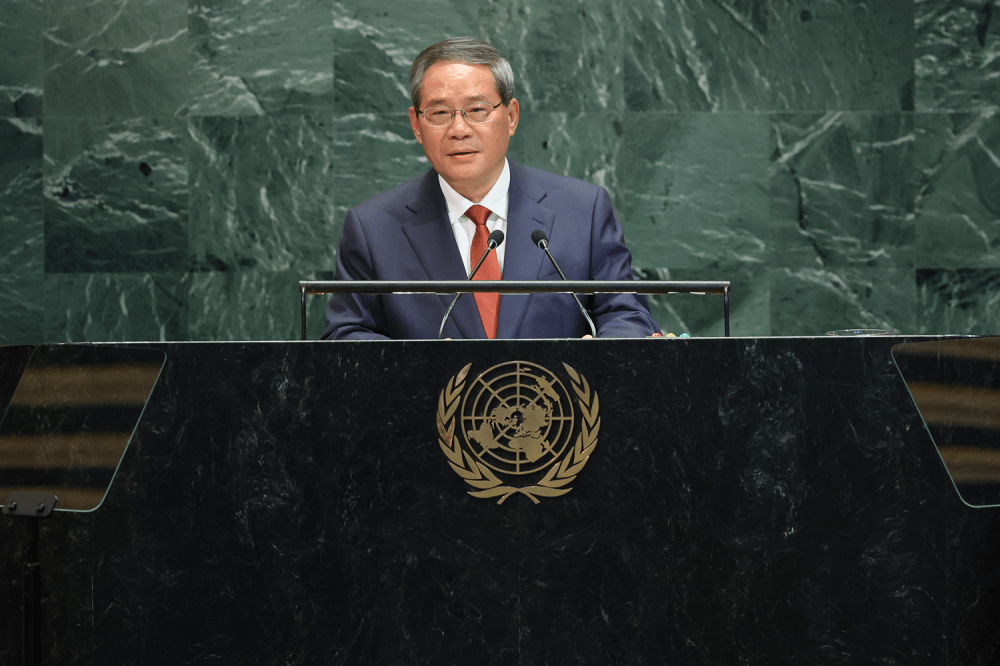Few countries are as fond of grandly named foreign-policy initiatives as China. Hot on the tails of the 2020 Global Initiative on Data Security, the 2021 Global Development Initiative, the 2022 Global Security Initiative, and the 2023 Global AI Governance Initiative and Global Civilization Initiative, China has just dropped its newest proposal for 2025: the Global Governance Initiative (GGI).
Whereas China’s previous generations of foreign-policy initiatives had names such as “Go Out,” “Harmonious World,” and “Belt and Road Initiative,” this recent focus on “global” initiatives seems to express a more concerted desire to shape this geopolitical moment for everyone. But whatever the name China uses for these initiatives, it is characteristically hard to actually define or measure their impacts.
This is no less true of the GGI, announced at the annual gathering of the Shanghai Cooperation Organisation (SCO) in Tianjin, China, on Sept. 1. According to the Chinese government’s concept paper on the initiative, it aims to make international institutions “better at taking actions, working effectively, adapting to changes, responding promptly and effectively to various global challenges, and serving the interests of all countries, particularly developing ones.”
Despite the vague objectives, though, it did not disappoint Chinese President Xi Jinping’s intended audience. The mostly Central Asian leaders at the SCO event applauded, while some countries that were not even present or part of the grouping, such as Cuba and Nigeria, expressed their support for the GGI through domestic media outlets.
But how is the GGI different from other countries’ global reform initiatives that came before? And what is China proposing in practice for its intended audience?
So far, the answer seems to be very little. For instance, Brazil used its 2024 presidency of the G-20 to promote a very similar agenda, focused on “profound reform” of global governance. Brasília prioritized the United Nations, the World Trade Organization (WTO), increasing global south representation in multilateral bodies, and many of the issues that China now also appears interested in tackling. Brazil’s effort may even have been the inspiration behind the GGI given the similarities.
By contrast, though, China appears to be launching this initiative with an undefined time frame and less defined objectives. While the GGI is in principle focused on the reform of global institutions, Beijing has yet to determine the points of common interest that it hopes may succeed or even why China is the best-placed country to advance this conversation.
Certainly some of the biggest non-Western countries, such as Brazil, India, and Saudi Arabia, have long sought to reform the permanent membership of the U.N. Security Council, even though China has blocked their proposals in the past.
Meanwhile, at the WTO, China and India have recently started siding with wealthier nations such as Japan, the United States, and those in Europe to defend agricultural subsidies. This is a real problem for countries such as Benin, Burkina Faso, Chad, and Mali, which produce cotton for export yet cannot afford to compete with the $700 million per year that the United States spent on its cotton farmers between 2010 and 2019, let alone the $41 billion in Chinese cotton subsidies during the same period.
This shift at the WTO is a painful development for poorer countries that are far more reliant on their agricultural sectors for both income and employment and may have hoped that China would behave differently from the wealthier countries that came before. Instead, these agricultural subsidies are forcing lower incomes and fewer export opportunities onto some of the world’s most vulnerable farmers, and it’s doubtful that the GGI will change this for the better when China’s own domestic interests are so central to maintaining the status quo.
Indeed, even China’s focus on the WTO demonstrates a clear interest in strengthening certain pillars of the existing liberal international order that would now benefit China—a country that has achieved internationally competitive industries and is overly reliant on export markets for GDP growth. But it is less clear whether lower-income countries with weaker industries are supportive of a resurrection of the WTO system or whether they might be hoping for something a little more seismic.
In other words, the China of today is not the China of yesterday. Although it often seeks to present itself as the leading voice of the global south, the truth is that its economic successes, as well as its economic vulnerabilities, have driven it toward policy positions that necessarily conflict with many countries in that grouping. Even within academic circles, China’s leading thinkers on international relations have come to view the world from a great power perspective as distinct from Global South scholars who typically reflect the concerns of smaller states.
Alternatively, China may also wish to use the GGI to spotlight new developments in the Asian Infrastructure Investment Bank and the New Development Bank. But presumably, China would celebrate their accomplishments regardless of a new foreign-policy initiative. It also seems ambitious to think institutions such as these are top of mind for those demanding change when there are already so many other multilateral development banks in existence.
Thus, for now, the only thing that seems to unite China’s intended global audience around the GGI is a shared sense that reforms are needed. But that doesn’t mean it’s weak.
China’s advantage in launching so many foreign-policy initiatives is that it can easily ignore when countries may not support them. For instance, while Syria’s new government will likely avoid endorsing China’s Global Security Initiative because of the Turkestan Islamic Party fighters in its military establishment (deemed a terrorist organization in China), it may feel more relaxed about endorsing the GGI as an inoffensive principle.
Going forward, China will likely claim geopolitical wins under its banner and use it as a forum to discuss desired changes as opportunities arise. When China brokered the re-establishment of relations between Saudi Arabia and Iran in 2023, for instance, Chinese news outlets claimed this success under the banner of its Global Security Initiative. Even though this was never an explicit goal at the initiative’s outset, it served as the perfect platform to claim a diplomatic success.
More importantly, though, the GGI will be at its strongest when it is least defined precisely because this creates the space for everyone to believe it can be a vehicle for their own unique hopes and dreams—even when those conflict with China’s own objectives in practice.
The post China’s Global Initiatives Are Worth Taking Seriously appeared first on Foreign Policy.




